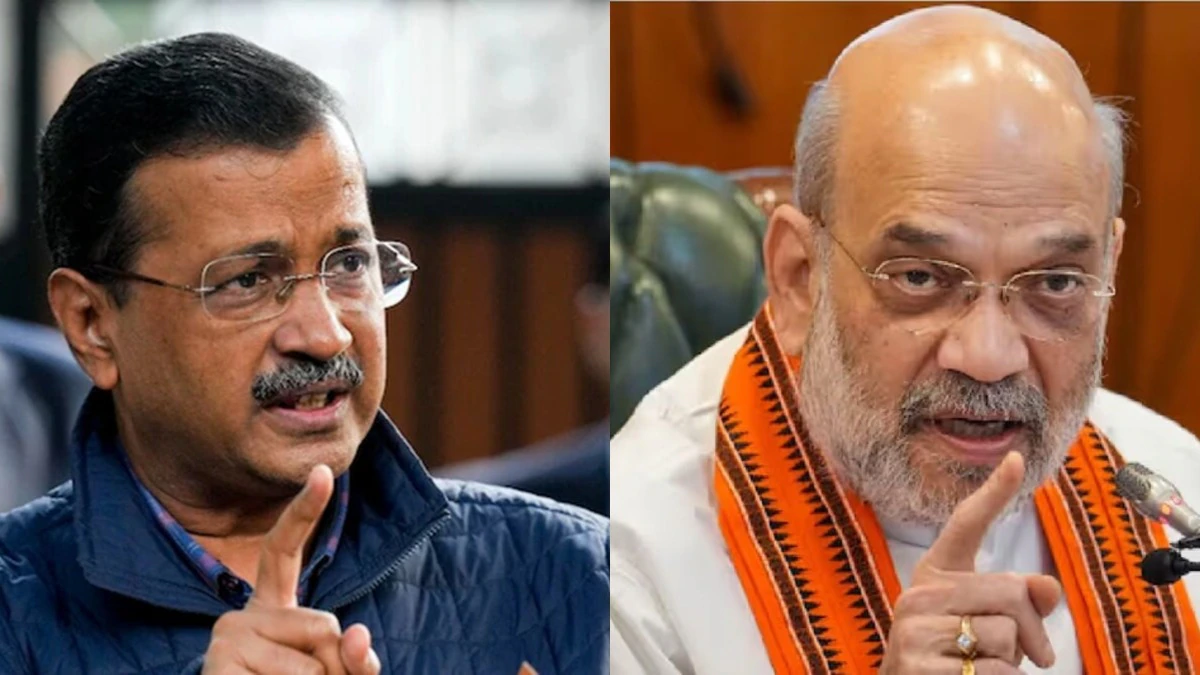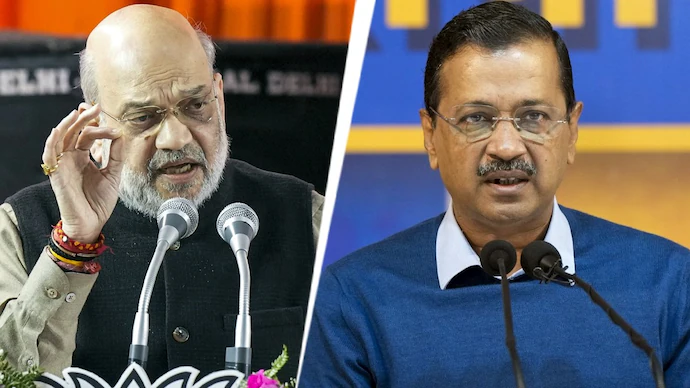Amit Shah, the Union Home Minister, has defended the proposed law that states a Prime Minister or Chief Minister may be removed after serving a month in jail for a serious offense.

New Delhi: Aam Aadmi Party (AAP) leader Arvind Kejriwal retaliated hours after Union Home Minister Amit Shah defended the proposed law that would remove ministers accused of serious offenses if imprisoned for more than a month. He asked whether those who fabricate cases against others and are later found not guilty would likewise be subject to the same punishment.
On X, Mr. Kejriwal made fun of the BJP for taking in turncoats from rival parties, many of whom were charged with serious corruption. He said, “The person who accepts leaders accused of serious crimes, clears the cases against them and names them minister, Deputy Chief Minister, or Chief Minister, should such a Prime Minister or minister resign?”
He questioned, “How many years in jail should a minister face for leveling false allegations if someone is jailed in a false case and is later acquitted?”.
The Home Minister had questioned whether a Prime Minister, Chief Minister, or Minister should be permitted to continue working after being imprisoned in a serious case during an interview with the news agency. Mr. Shah defended the Constitution Amendment Bill, which has been referred to a Joint Parliamentary Committee, by stating that ministers who are accused of minor offenses are exempt from this draft law. He questioned, “But is it right if those who deal with corruption or are charged in cases that carry sentences longer than five years in prison run the government from prison?”
“I want to ask the opposition and the entire country. Can a prime minister, chief minister, or other leader lead the nation while incarcerated? Does that uphold the honor of our democracy? The notion that this country cannot be run without the person seated there is something that my party and I vehemently disagree with. Nobody’s majority in the Assembly or Parliament will be impacted by this. Other party members will govern after one member leaves, and they can return to take the oath once they are released on bail. What’s wrong with this? He stated.
According to an earlier report, Mr. Kejriwal refused to step down after being arrested in a corruption case last year, the Center chose to introduce the proposed law in Parliament.
In a corruption case involving purported anomalies in Delhi’s since-cancelled liquor policy, Mr. Kejriwal was taken into custody in June. His cabinet colleagues managed the government on his behalf after the AAP made it clear that he would continue to hold the top position. He only resigned after being granted bail in September, stating that he would take up his position again following the Assembly election, or the “people’s court” decision. Earlier this year, the AAP lost the Delhi election.
According to the proposed law, any minister, chief minister, or prime minister who is detained for more than 30 days after being charged with a crime carrying a minimum sentence of five years in prison will be removed from office.
Opposition parties have claimed that central probe agencies have been abused and that this new law will only make India a “police state.”




